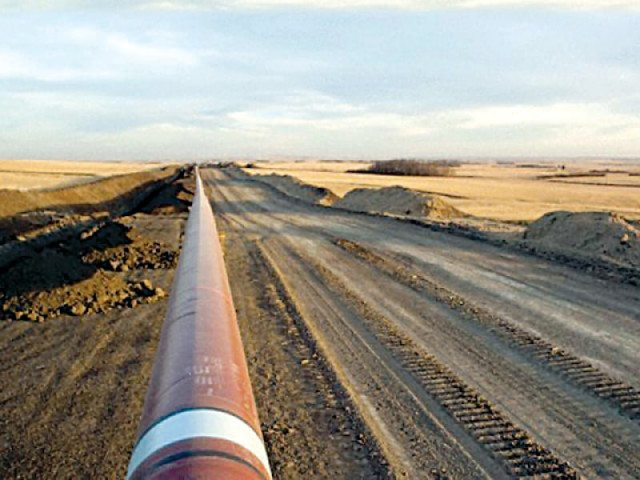TAPI pipeline: Pakistan looks for conflict resolution mechanism
Believes project will become unfeasible if price exceeds LNG rate.

Washington actively promotes the Tapi pipeline to bring rivals Pakistan, India and Afghanistan closer and drive Islamabad away from the IP project. STOCK IMAGE
The government, while voicing concern over the gas price agreed by the previous Pakistan Peoples Party (PPP) administration for a transnational pipeline, considers the project structure very complex that will require a conflict resolution mechanism to settle issues that arise in dealing with India and Afghanistan.
This is the second gas import project, called the Turkmenistan, Afghanistan, Pakistan and India (Tapi) pipeline, which has been thrown into doubt. Earlier, the Iran-Pakistan (IP) gas pipeline, an agreement for which was also signed during the PPP’s tenure, came to a halt because of US sanctions on Tehran.
Washington actively promotes the Tapi pipeline to bring rivals Pakistan, India and Afghanistan closer and drive Islamabad away from the IP project.
However, now the PML-N government has noticed that the Tapi project structure is complex and the pipeline will become unfeasible if the price exceeds the liquefied natural gas (LNG) rate, which has dropped substantially in the international market in the past few months.

The matter was brought to the notice of Prime Minister Nawaz Sharif in a meeting of the Cabinet Committee on Energy on February 12.
The premier underlined the need for energy and regional economic connectivity. However, he stressed that the structure of the project appeared to be very complex and would probably require extensive coordination and a conflict resolution mechanism.
It was pointed out in the meeting that the Tapi project primarily depended on the pricing mechanism, especially the cost of pipeline and the transit fee. If the price stood above the LNG rate, the project would not remain economically feasible, it was noted.
The total estimated cost of the project, which was $7.6 billion earlier, has swelled to $10 billion. Based on the pricing formula, Pakistan will receive gas from Turkmenistan at $6.9 per million British thermal units (mmbtu), which is $1 cheaper than the LNG price.
Participants of the cabinet committee meeting blamed a host of reasons for the delay in the execution of the project.
One of the main sticking points was the selection and appointment of a consortium leader for extracting gas and financing and laying the pipeline. The laws of Turkmenistan do not allow onshore concessions to foreign companies and only offer offshore concessions.
Pakistan has proposed a consortium of Chinese, Russian and Pakistani companies for hiring as the consortium leader.
Following the 20th meeting of the Tapi steering committee in Islamabad in February this year, which was attended by the ministers of all four countries, Turkmenistan decided to sign a memorandum of understanding with a gas producing company.
According to the agreed timelines, the selection of the consortium leader and bids would be finalised before October 30. A shareholders’ agreement will also be signed in the near future.
Published in The Express Tribune, March 4th, 2015.
Like Business on Facebook, follow @TribuneBiz on Twitter to stay informed and join in the conversation.



















COMMENTS
Comments are moderated and generally will be posted if they are on-topic and not abusive.
For more information, please see our Comments FAQ